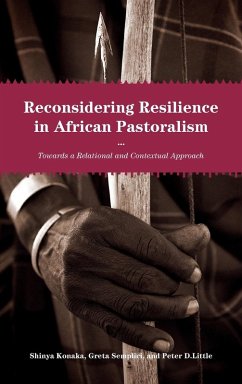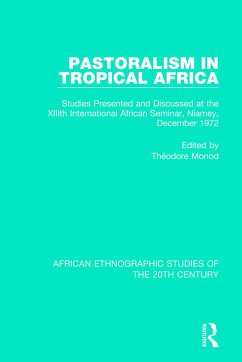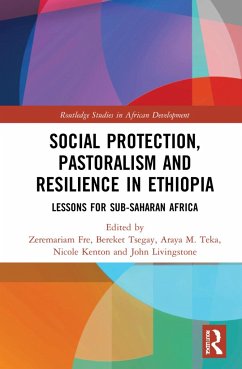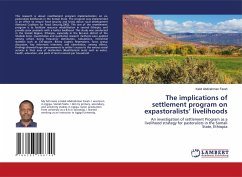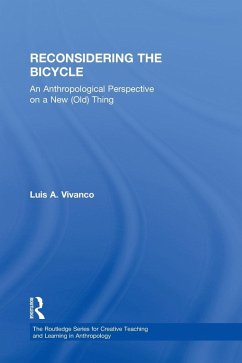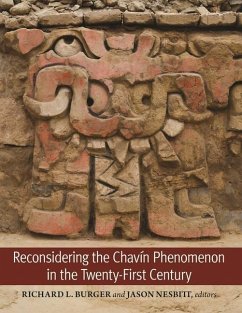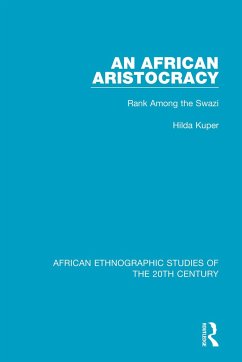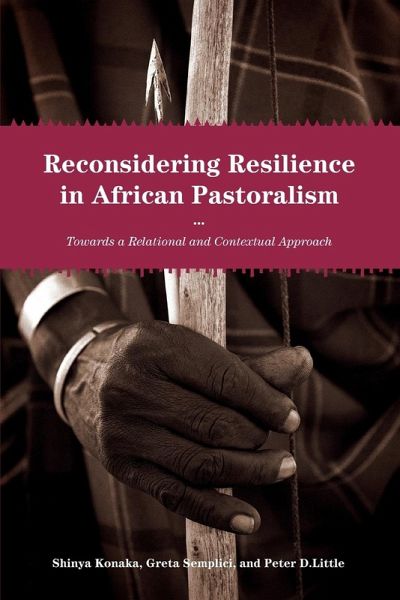
Reconsidering Resilience in African Pastoralism
Towards a Relational and Contextual Approach
Herausgeber: Konaka, Shinya; Semplici, Greta; Little, Peter D
Versandkostenfrei!
Versandfertig in 1-2 Wochen
33,99 €
inkl. MwSt.

PAYBACK Punkte
17 °P sammeln!
What does resilience mean? This is a question frequently asked and one that this book challenges and turns on its head. This book interrogates the increasingly overused concept of resilience by examining its application to a series of case studies focused on pastoralists in Africa. Through anthropological approaches, the book prioritises the localisation of resilience in context and practice; how to promote 'thinking resilience' in place of the typical 'resilience thinking' approach. Anthropology has the power to raise the vantage point of people and places, make them speak, breath, and live. ...
What does resilience mean? This is a question frequently asked and one that this book challenges and turns on its head. This book interrogates the increasingly overused concept of resilience by examining its application to a series of case studies focused on pastoralists in Africa. Through anthropological approaches, the book prioritises the localisation of resilience in context and practice; how to promote 'thinking resilience' in place of the typical 'resilience thinking' approach. Anthropology has the power to raise the vantage point of people and places, make them speak, breath, and live. And this gives to resilience more grounded and quotidian framings: local, relational, political and ever evolving. The authors ask whether development assistance and government intervention enhance the resilience of African pastoralists, while discussing critical topics, such as political power, land privatization, gender, human-animal identities, local networks, farmer-pastoralist relations, and norms and values. The epilogue, in turn, highlights important theoretical and empirical connections between the different case studies and shows how they provide a much more nuanced, culturally and politically meaningful approach to resilience than its common definition of 'bounce back.' By approaching resilience from relational and contextual perspectives, the book showcases a counter-narrative to guide more effective humanitarian and development framing and shed light on new avenues of understanding and practicing resilience in this uncertain world.





